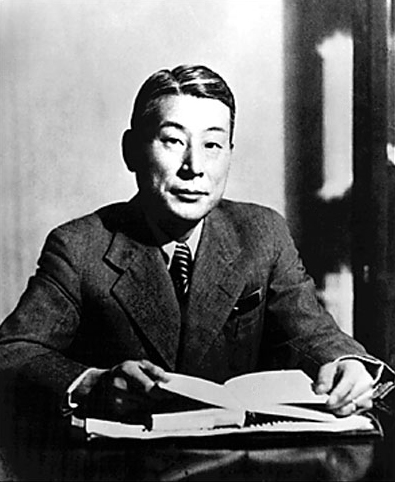Hitler invaded Poland on Sept 1, 1939, and the Nazis continued their sweep through Eastern Europe throughout the fall of 1939. Just as this was happening, a Japanese diplomat named Chiune Sugihara reported to his new job as Vice-Consul of the Japanese Consulate in Lithuania’s temporary capital of Kaunas.
 The tiny country of Lithuania was situated right between Germany and the Soviet Union. (Those two powers were not yet at war, but soon would be.) No sooner had Sugihara arrived than Jewish refugees from Poland began streaming into Lithuania, most without money or belongings, and all bearing horrifying tales of Nazi atrocities.
The tiny country of Lithuania was situated right between Germany and the Soviet Union. (Those two powers were not yet at war, but soon would be.) No sooner had Sugihara arrived than Jewish refugees from Poland began streaming into Lithuania, most without money or belongings, and all bearing horrifying tales of Nazi atrocities.
They joined the Lithuanian Jews, and all grew increasingly desperate to flee the Nazis. But it wasn’t easy to flee. In a shameful chapter of Western European and American history, many countries would not issue visas allowing Jews sanctuary.
But then a loophole was discovered. Desperate Jewish families learned of two Dutch Caribbean islands, Curacao and Dutch Guiana (now Suriname), that did not require formal entrance visas. The Dutch Consul had permission to stamp Jewish passports, allowing people entry into these territories. But to get there, they had to travel overland, across the Soviet Union, and then over to Japan. The Soviets insisted that anyone travelling east across their country have transit from Japan pre-approved before they would be allowed to leave Lithuania.
On June 15th, 1940, the Soviets invaded Lithuania. By July, they ordered all foreign embassies to leave Kaunas. Almost every consul left, but Sugihara asked for a 20-day extension. The extension was granted.
Sugihara was well aware that Jewish refugees needed Japanese transit visas to accompany their Soviet exit visas. But he did not have the authority to grant them visas, without permission from the Foreign Ministry in Tokyo.
Hundreds of refugees thronged to the Japanese Consulate, desperate for visas. Sugihara wrote to Tokyo for permission three times, and three times was firmly denied permission to issue visas.
After discussing it with his wife and children, Sugihara chose to defy his superiors. He began to grant visas anyway. This was a huge act of disobedience—a direct violation of his orders–and it put him and his family in grave danger. For 29 days, from July 31st to Aug 28, 1940, he and his wife sat and signed visas by hand.
With Japanese visas in hand, the refugees were permitted by Soviet officials to travel to Moscow, and then via trans-Siberian railway to the eastern coast of the Soviet Union and on to Japan.
According to witnesses, Sugihara was still writing out visas as his train pulled out of the station. He threw them out the window to those desperately waiting on the platform, and then tossed his visa stamp to a refugee, who was able to save more Jews.
What became of him? Sugihara was dismissed from his position for unspecified but suspicious reasons in 1945, and held a series of menial jobs for the next few decades. In 1985, he was finally recognized for the hero he was, having saved at least 6,000 (by some accounts as many as 10,000) people from the hands of the Nazis, and receiving Israel’s highest honor.